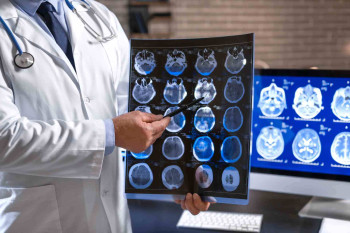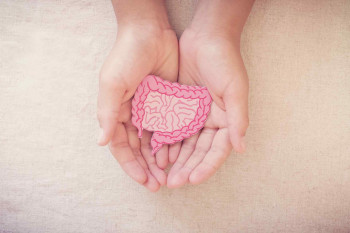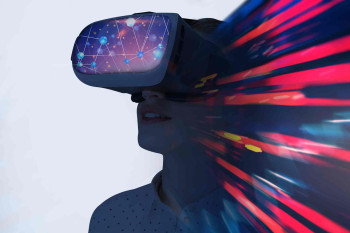Causes of back pain and why you should see a neurologist
Millions of people all over the world suffer from back pain. It can range from mild discomfort to severe pain that affects a person's ability to perform daily activities. In some cases, back pain can be an indication of a more serious underlying condition. Understanding the underlying causes of back pain is essential for effective treatment.
Common Causes of Back Pain
There are several common causes of back pain, including:
- Lifting heavy objects,making sudden movements, or overusing the muscles can all result in muscle or ligament strain.
- Herniated discs: This occurs when the cushion between the vertebrae in the spine becomes damaged or ruptured, causing pressure on the nerves.
- Osteoarthritis: Pain and stiffness in the back and neck are symptoms of degenerative joint disease that can affect the spine.
- Spinal stenosis: This is a narrowing of the spinal canal, which can put pressure on the nerves and cause pain.
- Scoliosis: This is a curvature of the spine that can cause back pain and affect a person's posture.
Preventing back pain
Preventing back pain is possible with a few simple lifestyle changes. Some tips include:
- Maintaining a healthy weight: Excess weight can put extra pressure on the spine, leading to pain and discomfort.
- Regular exercise: Strengthening the muscles in the back and abdomen can help prevent back pain.
- Practicing good posture: Sitting and standing with proper alignment can help prevent strain on the back.
- Proper lifting techniques: Lifting heavy objects with the legs instead of the back can help prevent strain and injury.
- Avoiding smoking: Smoking can reduce blood flow to the spine, slowing the healing process and increasing the risk of back pain.
Non-Surgical Treatments for Back Pain
There are several non-surgical treatments for back pain, including:
- Physical therapy: This can help improve the strength and flexibility of the muscles in the back.
- Chiropractic care: This involves manipulation of the spine to help relieve pain and improve alignment.
- Acupuncture: This involves the use of fine needles to stimulate specific points on the body, which can help relieve pain.
- Massage therapy: This involves the use of manual manipulation to relieve muscle tension and pain.
- Medications such as NSAIDs: These can help reduce pain and inflammation.
When to See a Doctor
In some cases, back pain may require medical attention. You should see a doctor if:
- Your back pain is persistent and does not improve with rest and over-the-counter medications.
- There are additional symptoms in addition to your back pain, such as fever or unexplained weight loss.
- You experience difficulty walking or standing.
Importance of Seeing a Neurologist for Back Pain
Neurologists specialize in the nervous system, which includes the spine and related structures
They can help diagnose and treat conditions that cause back pain, such as spinal stenosis, herniated discs, and nerve damage. Neurologists can also provide guidance on managing chronic back pain and improving quality of life.
Conclusion
There are numerous potential causes of back pain, and it is important to treat it seriously. Taking steps to prevent back pain and seeking medical attention when necessary can help manage symptoms and improve overall health and well-being. If you're experiencing back pain, it's important to consult a medical professional to determine the underlying cause and receive appropriate treatment.
Here are 10 frequently asked questions about back pain:
What are the most common causes of back pain?
The most common causes of back pain include muscle or ligament strain, herniated discs, osteoarthritis, spinal stenosis, and scoliosis.
What can I do to prevent back pain?
Maintaining a healthy weight, regular exercise, practicing good posture, proper lifting techniques, and avoiding smoking can all help prevent back pain.
When should I see a doctor for my back pain?
If your back pain is persistent, does not go away with rest and over-the-counter medications, comes with other symptoms, or makes it difficult for you to walk or stand, you should see a doctor.
What are some non-surgical treatments for back pain?
Non-surgical treatments for back pain include physical therapy, chiropractic care, acupuncture, massage therapy, and medications such as NSAIDs.
What is spinal stenosis?
Spinal stenosis is a narrowing of the spinal canal, which can put pressure on the nerves and cause pain.
What is scoliosis?
Scoliosis is a curvature of the spine that can cause back pain and affect a person's posture.
What is a herniated disc?
A herniated disc occurs when the cushion between the vertebrae in the spine becomes damaged or ruptured, causing pressure on the nerves.
Can back pain be a symptom of a more serious condition?
Yes, in some cases back pain can be a symptom of a more serious underlying condition such as cancer or an infection.
How can a neurologist help with back pain?
Neurologists specialize in the nervous system, which includes the spine and related structures. They can help diagnose and treat conditions that cause back pain, such as spinal stenosis, herniated discs, and nerve damage.
What can I do to manage chronic back pain?
Managing chronic back pain may involve a combination of lifestyle changes, medications, and therapies such as physical therapy or acupuncture. Consultation with a medical expert is crucial in creating an individualized treatment strategy.

























